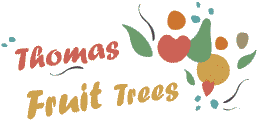Jantarnyj cornelian cherry trees
(Yantarnyj)
Cornus mas - Picking season: Mid
- Fruit colour: Yellow
Jantarnyj is mid-season Cornelian cherry.
It is one of the most productive Cornus mas varieties, and should exceed 20kg of cherries when the tree is 10 years old. The bright yellow fruits ripens over the course of a few weeks in late August and early September, and will naturally fall to the ground when they are perfectly ripe.
As with all Cornelian cherries this is primarily a culinary fruit, but Jantarnyj has a sweeter flavour than most and can be eaten fresh.
Please note these plants are not certified bio / organic.
Jantarnyj cornelian cherry trees for sale
1 yeartree on Cornus seedling rootstock(130cm)36.25€Medium tree
(2m-3.5m after 10 years)
supplied in a 2L pot
Sold-out
Contact us if you would like to go on the waiting list for next season.
EU delivery countries Click here to view estimated delivery charges
Click here to view estimated delivery charges.
Growing and Training
Jantarnyj is not self-fertile, we recommend you plant another different Cornelian cherry variety nearby.
Jantarnyj is very easy to grow, but do not allow the tree to dry out over the summer - regular watering is needed.
Jantarnyj characteristics
- Gardening skillAverage
- Self-fertilityNot self-fertile
- Disease resistanceGood
- Picking periodearly September
- Picking seasonMid
- Food usesEating freshCulinaryJuice
- Country of originUkraine
- Fruit colourYellow
More about cornelian cherry trees
Cornelian cherries are the fruits of Cornus mas, a species of flowering dogwood. They have a rich sharp flavour which is ideal for all kinds of cookery, and are widely used in eastern Europe and the Near East for making jams and preserves. The fruits usually ripen in September, and are typically either bright red or bright yellow. They can also be eaten fresh when fully ripe - they taste similar to sour cherries or cranberries.
Cornelian cherries are becoming popular because of the exceptional health benefits of the fruits. They naturally have very high levels of vitamin C, anthocyanins, and iron, and are considered to have good anti-oxidant properties. The fruits have relatively large stones and little flesh, and the highest concentrations of these beneficial chemicals are found in the skin.
Cornelian cherry trees are likely to reach a height of about 3m after 10 years, with a spreading bush-like habit, often becoming multi-stemmed. You can encourage a more tree-like habit by pruning out the lowest branches. Pruning can be done at any time of the year, but is best done in mid-winter. In good conditions they will continue to grow to perhaps 4m - 5m or more.
If you are establishing a new orchard you can use a spacing of 3m from stem to stem in rows 5m apart, preferably in full sun. They can also be planted at 50cm intervals if you want to create a fruiting hedge. If you just want to add a few trees to your garden, plant them about 3m apart. They can also be trained as fans on a trellis or south-facing wall.
The flowers appear very early in the spring, and have an attractive ornamental appearance. They are very resistant to frost damage, and provide a useful resource for pollinating insects when there is not much else around.
The trees are cold-hardy to USDA zone 4, so can tolerate average minimum temperatures of -25C. They do best in neutral or slightly acidic soils which are rich in humus. Avoid shallow or chalky soils. The key requirement is irrigation or regular watering in hot weather.
Cornelian cherry trees are untroubled by diseases and pests, and are therefore ideally suited to organic or untreated regimes.
The modern cultivated varieties of Cornus mas are very productive and high yielding. At 10 years old a typical tree will produce 10kg - 20kg of fruit annually in an amateur orchard, increasing to perhaps 40kg as it gets older. Higher yields are possible in commercial orchards. The trees are very long-lived, and production is likely to increase steadily over the first 50 years.
Cornelian cherries are not self-fertile, so it is usually best to plant at least two-three different varieties together in the orchard.
